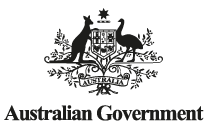Inspector-General of Biosecurity prawn review report
A review of the effectiveness of biosecurity controls implemented by the Department of Agriculture and Water Resources on uncooked prawn imports was issued today by Australia’s Inspector-General of Biosecurity, Dr Helen Scott-Orr.
The Inspector-General began the review in February 2017 following the outbreak of white spot disease (WSD) in south-east Queensland prawn farms from December 2016 and the suspension of uncooked prawn imports in January 2017.
The 2016–17 WSD outbreak was a major threat to Australia’s developing prawn aquaculture industry. It was costly for affected prawn farmers and for nearby commercial and recreational fishing industries, and for governments, especially the Queensland and Australian governments. Local industry and government costs will likely total more than $100 million by mid-2018.
The source of infection was suspected to be imported uncooked prawns used as bait by fishers in the Logan River. This led to the suspension of uncooked prawn imports for the first six months of 2017.
WSD is caused by white spot syndrome virus (WSSV), which can kill an entire pond of prawns in the week after the first signs of disease appear. Since emerging in farmed prawns in China in 1992, WSSV has spread to most areas with prawn aquaculture industries around the world, except New Caledonia and, until recently, Australia. The virus is becoming more virulent, and estimated global losses from WSD exceed $1 billion per year.
Dr Scott-Orr found that there had been a major failure of Australia’s biosecurity system. This failure was due to longstanding import conditions for uncooked prawns that were difficult to implement, serious non-compliance by some major importers, weak border inspection procedures, and variations in laboratory test result interpretation.
Departmental investigations before and after the suspension revealed high levels of WSSV in imported uncooked prawn batches destined for retail sale – in 64 per cent of unprocessed, uncooked prawns. These prawn products had already passed border inspection, sampling and testing processes designed to protect Australia from WSSV, and had been released from biosecurity control by the Department of Agriculture and Water Resources. As well, 88 per cent of marinated prawns, which did not need testing, were positive for WSSV.
Although packaging on these products stated ‘For human consumption only – not to be used for aquatic animal feed or bait’, it is likely that much of the product would have been sold unpacked and thawed so that buyers would not be aware of this advice.
From 2014, the Department of Agriculture and Water Resources had been investigating aspects of the uncooked prawn import trade. By late 2016 the department found that some importers had apparently been misdeclaring or falsely presenting prawn consignments to avoid border testing. Some inspection practices were weak and interpretation of laboratory testing results was variable. Departmental naivety about the extent to which all importers could be trusted, and complexity of internal information flow and risk management, had contributed to a failure to realise the size of the emerging problem.
Import conditions for prawns and prawn products had not changed since 2010. They had been put in place after a 12-year long import risk analysis. Many of the requirements, especially for identifying, sampling and testing each batch of uncooked prawns, were technically and practically hard to implement, although some of these difficulties only became fully apparent to the department in 2017. Human resources devoted to managing biosecurity risks at the border had diminished substantially in recent years even as risks were increasing.
The department has agreed with 21 of the IGB’s 22 recommendations either fully or in principle, and implementation of a number of them is already underway. Long-term commitment to full implementation, with adequate resourcing, will be needed to manage the biosecurity risks of prawn product imports in the future.
- Rec.s 1–5 relate broadly to import conditions, the science underpinning them, and pre-border issues. These will be handled partly through a formal review of prawn import conditions that the department began in May 2017, which may take two years to complete.
- Rec.s 6–10 deal with strengthening aspects of the department’s processes for border inspection of prawn consignments and other frozen goods, and for verification of staff training and competency.
- Rec 11, noted by the department, is that the Australian Government ensure adequate long-term funding for biosecurity risk management, including border inspections and enforcement – critical to secure our human health, agriculture, aquaculture and environment from risks of imported pests and diseases.
- Rec.s 12–13 deal with possible strengthening of certain powers or penalties under the Biosecurity Act 2015.
- Rec.s 14–16 address internal and external biosecurity risk communication and management by the department.
- Rec.s 17–19 deal with improving governance arrangements for laboratory testing for WSSV.
- Rec.s 20–22 relate to the department’s involvement with other government agencies, industry and the science community in the post-border area, where the Australian government has limited powers to act alone and must work in partnership to achieve national outcomes.
The importation of uncooked prawns and other seafood into Australia will continue to pose significant and changing challenges for the department and industry. The recent WSD outbreak in Queensland, and the subsequent findings of importation of WSSV-infected prawns, despite previous import requirements intended to keep this virus out, highlight the need for the department to remain vigilant, proactively review and update import requirements and policies, and maintain excellent communication with government and industry stakeholders.
Above all, detecting and deterring deliberate or inadvertent failures to implement biosecurity risk management policies effectively must be a priority. Governments and aquatic industries must cooperate to resource and implement these efforts. Failure to do so will imperil the future development of a sustainable and profitable aquaculture sector in Australia.





